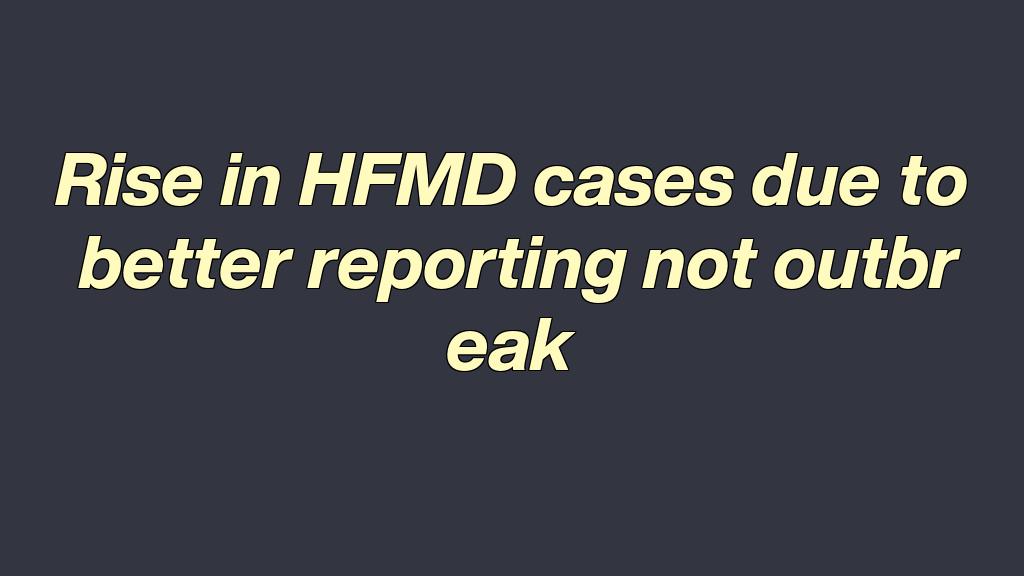THE Department of Health (DOH) on Monday said the recent spike in hand, foot, and mouth disease (HFMD) cases does not imply a dangerous outbreak but is a result of improved case reporting.
Rise in HFMD cases due to better reporting, not outbreak
“We cannot call this an outbreak,” said DOH Assistant Secretary Albert Domingo, explaining that 94 percent of the logged cases are still considered “suspect” and are not yet laboratory-confirmed.
Rise in HFMD cases due to better reporting, not outbreak
As of Aug. 9, the latest DOH data showed HFMD cases reaching 37,368 — over seven times higher than the 5,081 cases during the same period last year.
Despite the increase, Domingo emphasized that HFMD is not fatal and usually resolves within 7 to 10 days.
But DOH urged the public to remain cautious, especially during the wet season when transmission of the viral infection is more likely., This news data comes from:http://qb.052298.com
HFMD spreads through saliva, respiratory droplets, and contaminated surfaces.
Symptoms include fever, sore throat, rashes, and painful sores on the hands, feet, and inside the mouth.
In an earlier report, Health Secretary Ted Herbosa noted that the disease is highly contagious among children, because they spend more time indoors in the rainy season, making transmission easier.
While there is no specific cure, supportive treatment such as hydration, rest, and fever reducers can help patients recover faster.

- 20 people missing after deadly Indonesia protests
- South Korean President vows support to Koreans arrested in US immigration raid
- Trough of LPA, ‘habagat’ will bring rain showers, thunderstorms across PH
- No winner in Ultra, Megalotto draws for Sept 5
- Marcos wants subpoena power for body investigating flood projects
- Alex Eala targets US Open Round of 32 in rematch against Spanish rival
- Lone bettor wins P86M in 6/42 lotto draw for Sept 6
- Marcos suspends importation of regular, well-milled rice for 60 days
- Marcos willing to submit to a lifestyle check
- Gaps in healthcare services remain - study